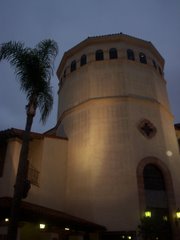UC Irvine has collected an additional $3.9 million for the study of human embryonic stem cells, raising its backing from the state to about $17.5 million and making the campus among the most heavily funded in the world in this nascent area of biomedical research.
Wow, so it looks like our decision to invest in stem cell research is starting to pay off! Thanks to Prop 71, UC Irvine can continue its groundbreaking research that may one day lead to real cures for nasty diseases. Follow me down below for more on what UCI will be doing with that additional $3.9 million...
(Cross-posted at Calitics)
So what exactly will this money be going to?
The California Institute for Regenerative Medicine gave UCI the money to better equip a fast-growing research center and to train scientists to cultivate stem cells, which have the ability to become any cell in the body, making them potentially useful in treating disease and injury.
The money was part of the $50 million that the agency gave 17 institutions Tuesday for laboratories and training. To date, the state agency has given out more than $200 million, and will eventually distribute an unprecedented $3 billion, as called for in the voter-approved initiative Proposition 71.
And why is this important?
The university has been competing hard for the state funds, and raising millions from private donors, so that it doesn't have to rely on federal money to run its core research center. The federal government limits funding to a small number of stem cell lines that were in existence as of Aug. 9, 2001.
The restrictions were imposed by President Bush, who says he doesn't want to sanction the destruction of additional embryos so that the number of lines can be expanded. Congress is scheduled to vote this week on a bill that would ease the restrictions on federal funding, but Bush has said he would veto such a measure.
The $3.9 million Irvine got Tuesday promotes "a 'fed-free' zone where people are not only doing research but are trying to bring their results to clinical trials," said Hans Keirstead, co-director of UCI's Bill and Susan Gross Stem Cell Research Center.
Remember what George W. Bush told us back in August 2001? The federal government won't fund embryonic stem cell research. And so long as the federal government won't fund any research, such academic institutions as UCI (which receive plenty of federal funds) have difficulty engaging in such important and promising scientific research.
But now, UCI can continue its research, now that private donors and the California Institute for Regenerative Medicine are chipping in. And what will UCI be doing with all this money? They will likely be building upon the progress that they have already been making. Take a look at what has been accomplished at UCI's Stem Cell Research Center:
* James Fallon (Parkinson's Disease): In 1997 and again in 2000, Fallon was the first to demonstrate how significant numbers of rodent adult stem cells and progenitors can be mobilized to help repair an injured brain. These results point the way toward potential new treatments that harness stem cells within the brain to reverse damage done by stroke, Parkinson's, Alzheimer's and other neurodegenerative conditions.
* Ken Cho and Ping Wang (Diabetes): Ken Cho, Professor of Developmental and Cell Biology, identified over 50 genes affecting the transformation of mouse embryonic stem cells into insulin-producing cells, perhaps pointing the way toward a means of expanding the supply of transplantable insulin-producing cells. Ping Wang, Associate Professor in the School of Medicine, has identified internal cellular processes that promote the growth and survival of cells affected by diabetes.
* Hans Keirstead and Aileen Anderson (Spinal Cord Injury): Hans Keirstead has injected hESCs into paralyzed rats and significantly increased their mobility, work expected to result in the first clinical trial using human embryonic stem cells in 2006. Keirstead was also the first to develop a high-purity line of functional nerve tissue cell progenitors from hESCs. Anderson investigates the role of inflammation following spinal cord injury.
And in addition to all of this, there is so much more. There's progress being made on treating Alzheimer's. There's greater understanding as to what happens with genetic diseases. There's progress being made on fighting neurological disease. Basically, UCI is leading the way in finding treatments, discovering cures, and renewing a sense of hope with its scientific research!
Heck, their scientists are even becoming celebrities! ; )
No, but really, good things are happening at UCI. And thanks to California voters deciding that this type of scientific research is valuable and should be encouraged, UCI can continue this research. And hopefully one day, all this research will lead to valuable cures. : )









No comments:
Post a Comment